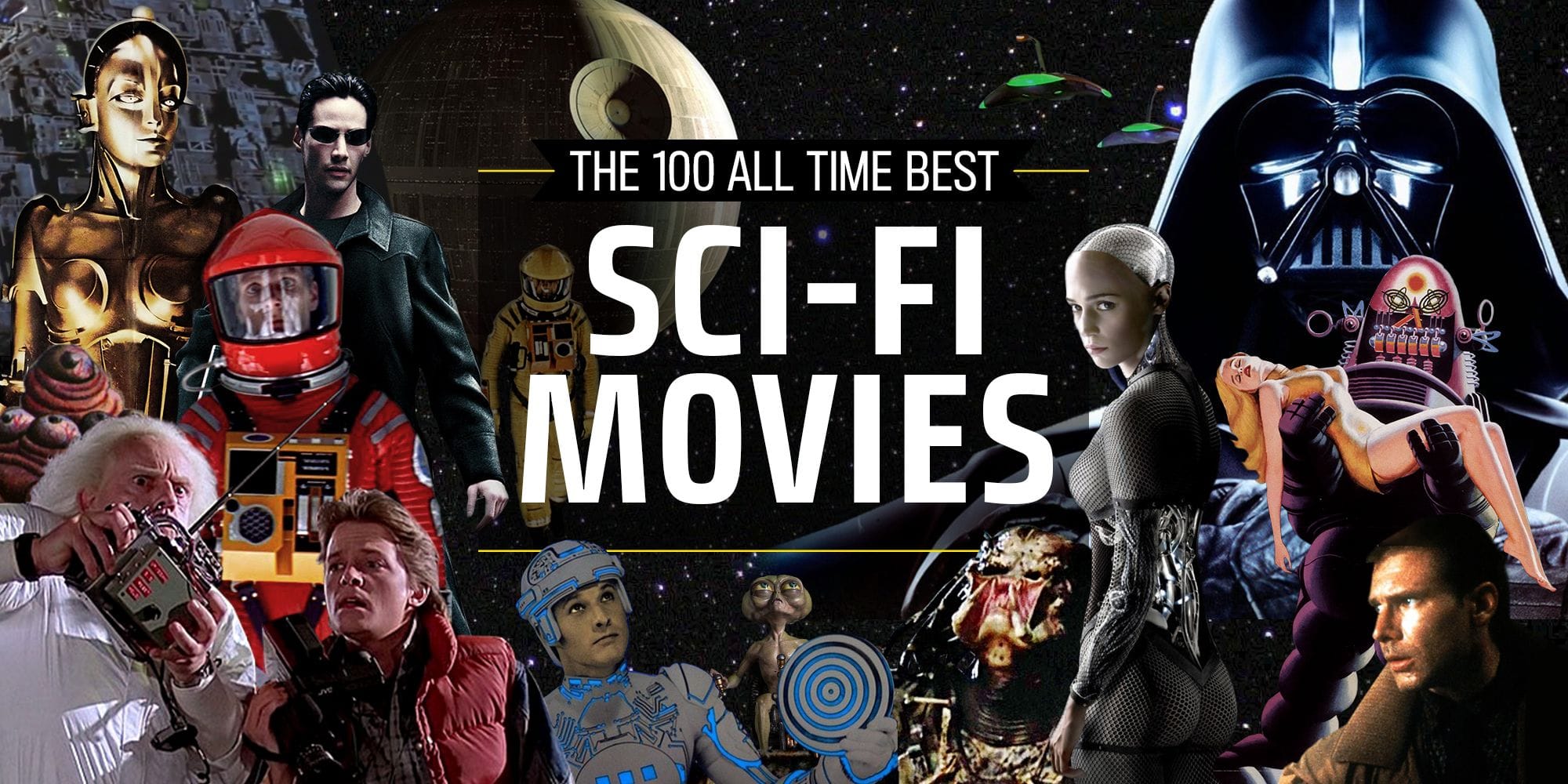
From the groundbreaking short A Trip to the Moon by Georges Méliès to the epic Dune by Denis Villeneuve, sci-fi cinema has always been a playground for visionaries. But only a few films have managed to not just reflect the future — they shaped it. These are the movies that didn’t just ride the wave of innovation; they built the surfboard.
Frankenstein
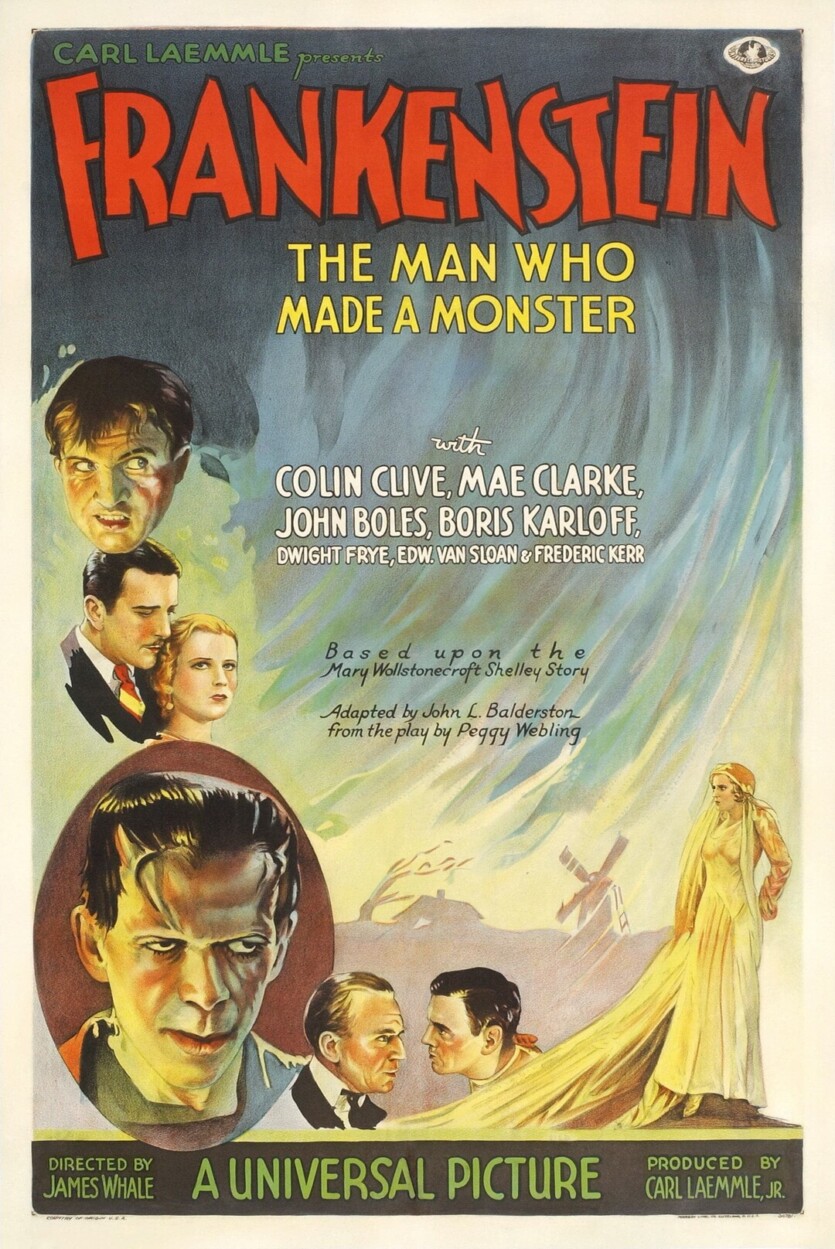
Year: 1931
Director: James Whale
IMDb Rating: 7.8
Long before Elon Musk started launching cars into space and Mark Zuckerberg rebranded Facebook as Meta, Mary Shelley wrote Frankenstein , widely considered the first true sci-fi novel. Its cinematic adaptation by James Whale gave us the blueprint for modern mad scientists, artificial life, and technology gone rogue — all while being black-and-white and without a single CGI explosion.
This flick introduced the world to the idea of playing God with science — and then getting punched in the face by your own creation. Sound familiar? Yeah, Terminator , Gattaca , Jurassic Park , Moon , and even Mickey 17 owe this movie more than they’d like to admit.
So next time you see Skynet going haywire or dinosaurs resurrected from amber, remember: Frankenstein did it first. And he did it with bolts in his neck.
Star Wars: Episode IV – A New Hope
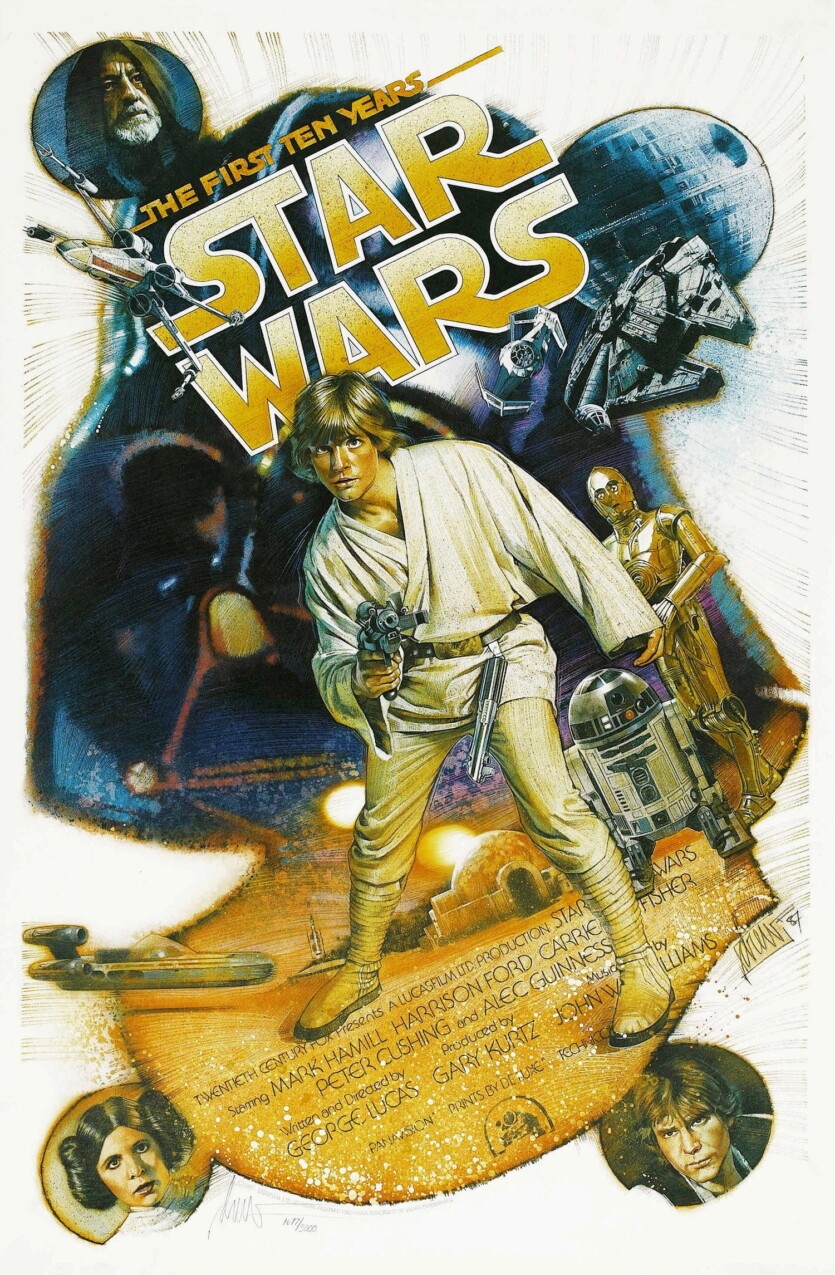
Year: 1977
Director: George Lucas
IMDb Rating: 8.0
Before Jaws coined the term “blockbuster,” Star Wars made it a lifestyle. This little space opera about a farm boy who discovers he’s secretly a space wizard launched an empire so big it includes theme parks, animated series, spin-offs, and enough merchandise to fill the Death Star twice over.
But beyond lightsabers and Ewoks, A New Hope changed everything. It turned sci-fi from niche nerd stuff into mainstream magic. Ridley Scott saw it and thought, “Hey, maybe I should make a space horror.” James Cameron watched it and quit his job as a truck driver to chase Hollywood dreams. Even Paramount rushed Star Trek into production because they suddenly believed people would pay money to see laser battles and weird aliens.
George Lucas also founded Industrial Light & Magic (ILM), which basically invented visual effects as we know them. Without ILM, there’d be no Terminator , no Pirates of the Caribbean , and definitely no Baby Yoda.
And let’s not forget the mythological structure borrowed from Joseph Campbell’s The Hero with a Thousand Faces . From Harry Potter to The Matrix , every hero’s journey since owes Lucas a thank-you note.
Alien
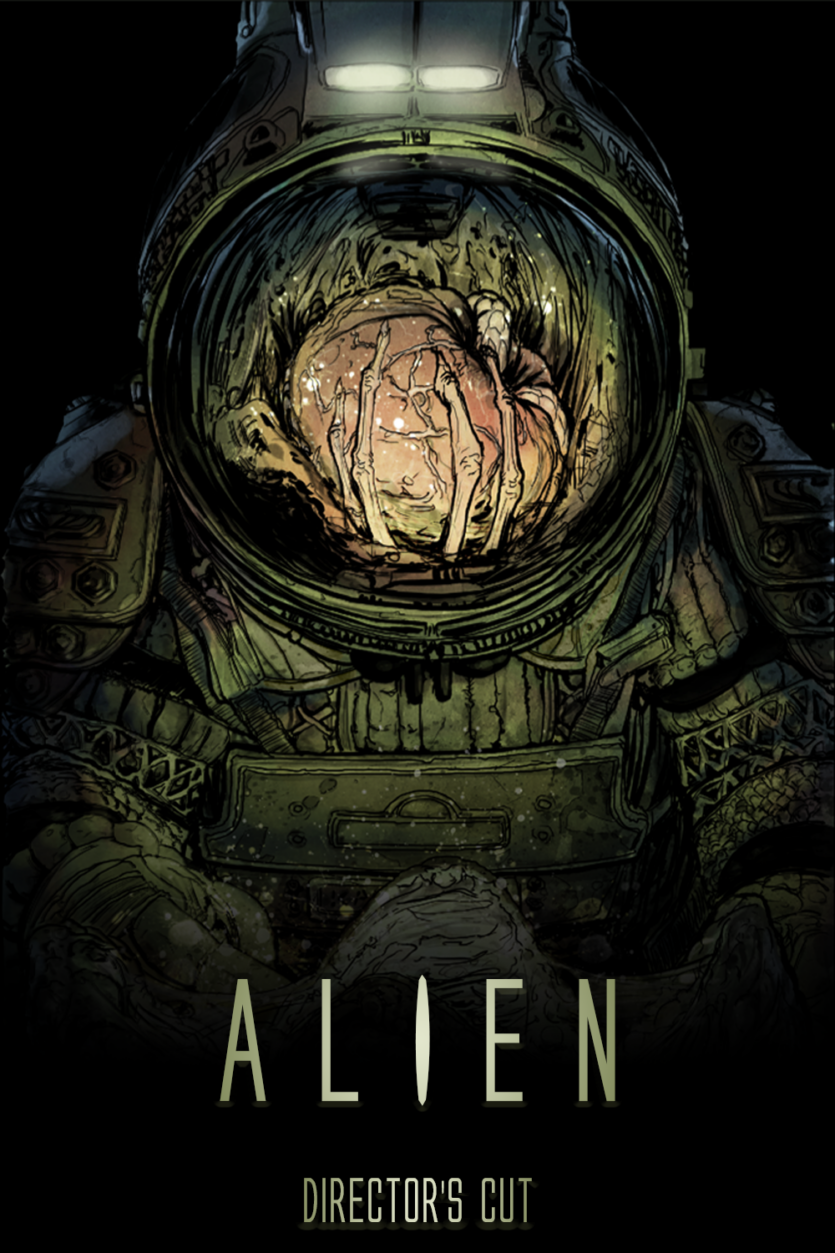
Year: 1979
Director: Ridley Scott
IMDb Rating: 8.5
Two years after Star Wars lit up the galaxy with hope and optimism, Alien showed us the other side of the universe: dark, dirty, and full of acid-blooded monsters that love face-hugging.
Ridley Scott took sci-fi and dunked it in grime. Instead of shiny spaceships and noble Jedi, Alien gave us the Nostromo — a rusty cargo hauler crewed by regular joes trying to get paid. They weren’t heroes. They were mechanics with death wishes.
The film also perfected the art of claustrophobic terror. Trapped on a ship with something that wants to kill you, reproduce using your body, and dissolve anyone who gets too close? Sounds like a great date night!
Since its release, Alien has spawned a whole sub-genre of cosmic horror. The latest entry, Alien: Romulus (2024), proves the franchise is still terrifyingly relevant. And if that wasn’t enough, FX is dropping Alien: Earth soon — because apparently, running away from xenomorphs isn’t exciting enough unless you do it on your home planet.
Blade Runner
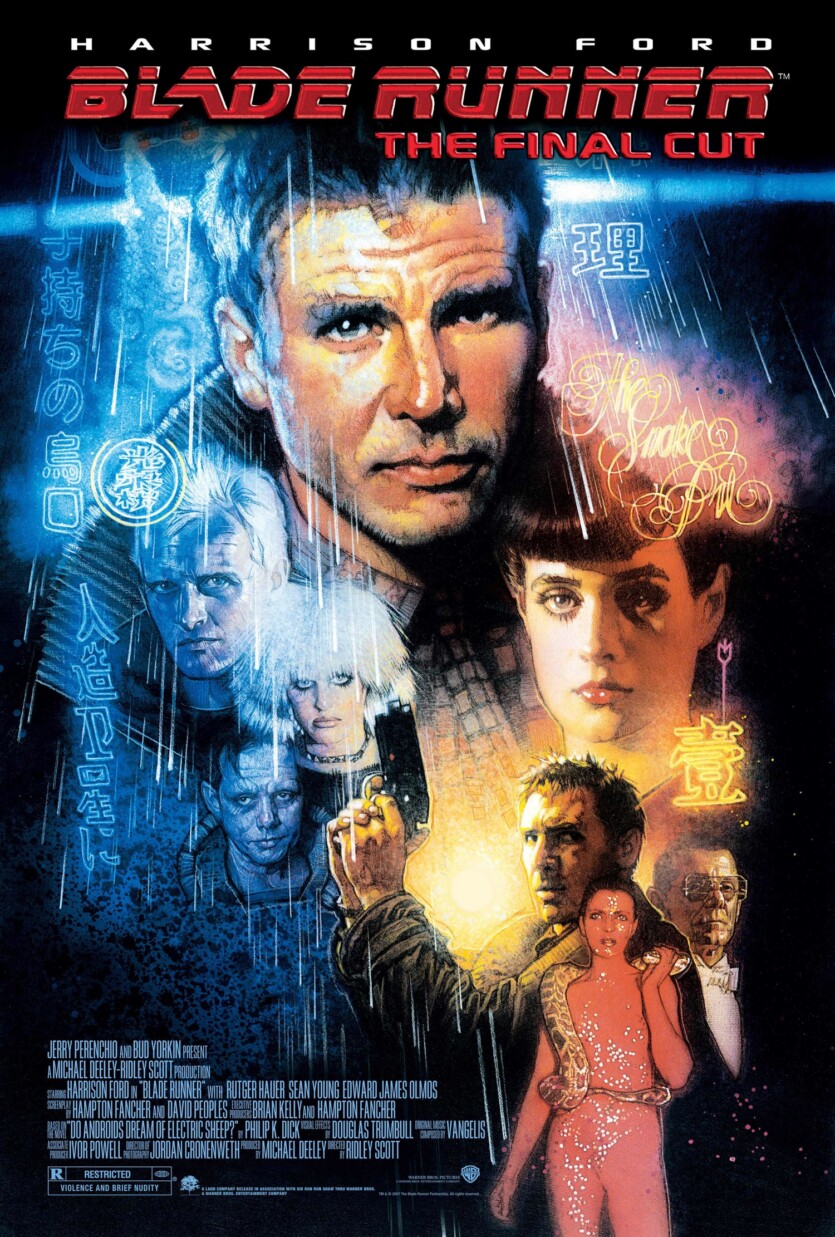
Year: 1982
Director: Ridley Scott
IMDb Rating: 8.1
While most sci-fi was busy looking forward with wide-eyed wonder, Blade Runner stared into the future and said, “Nah, looks depressing.”
Set in a neon-soaked, smog-filled Los Angeles of 2019, the film introduced the world to cyberpunk — long before hackers wore leather jackets and smoked cigarettes under holographic billboards. It bombed at the box office, but like a fine wine (or vintage synthwave track), it aged beautifully.
Guillermo del Toro once said watching Blade Runner changed how he saw the world. William Gibson, author of Neuromancer , credited it with defining cyberpunk. And ever since, filmmakers have been borrowing its moody lighting, existential dread, and obsession with what it means to be human.
You can thank Blade Runner for The Matrix , Ghost in the Shell , Cowboy Bebop , and every anime where rain never stops falling.
Back to the Future
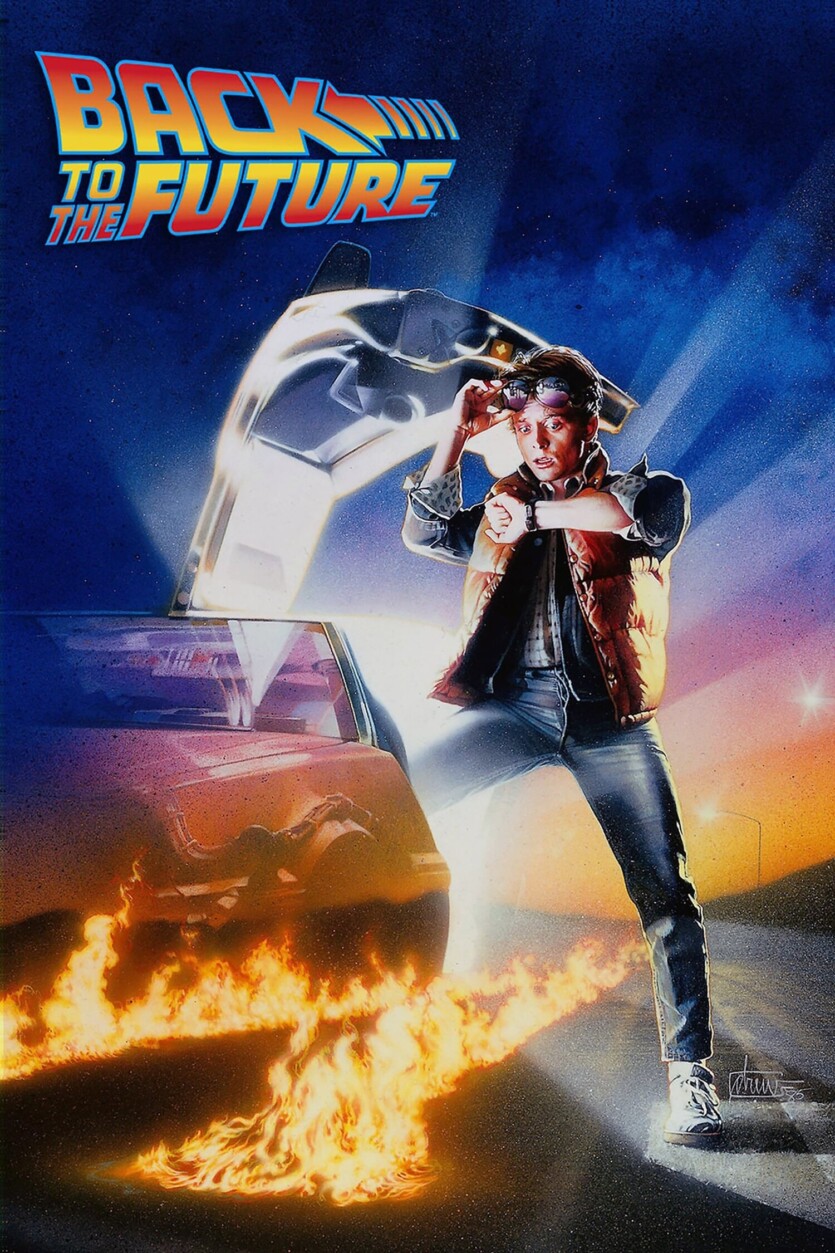
Year: 1985
Director: Robert Zemeckis
IMDb Rating: 8.5
What happens when you mix a DeLorean, a lightning bolt, and a teenage guitarist who accidentally prevents his parents from meeting? You get one of the best time-travel stories ever told — and also the reason why everyone now thinks plutonium is cool.
This movie took time travel and made it fun, fast-paced, and oddly romantic. Marty McFly became an icon, Doc Brown became our favorite eccentric scientist, and Ronald Reagan quoted the line “Roads? Where we’re going, we don’t need roads” during a televised speech. Yes, really.
It also spawned sequels, comics, rides at Universal Studios, and fan theories that could rival any quantum physics textbook.
Terminator 2: Judgment Day
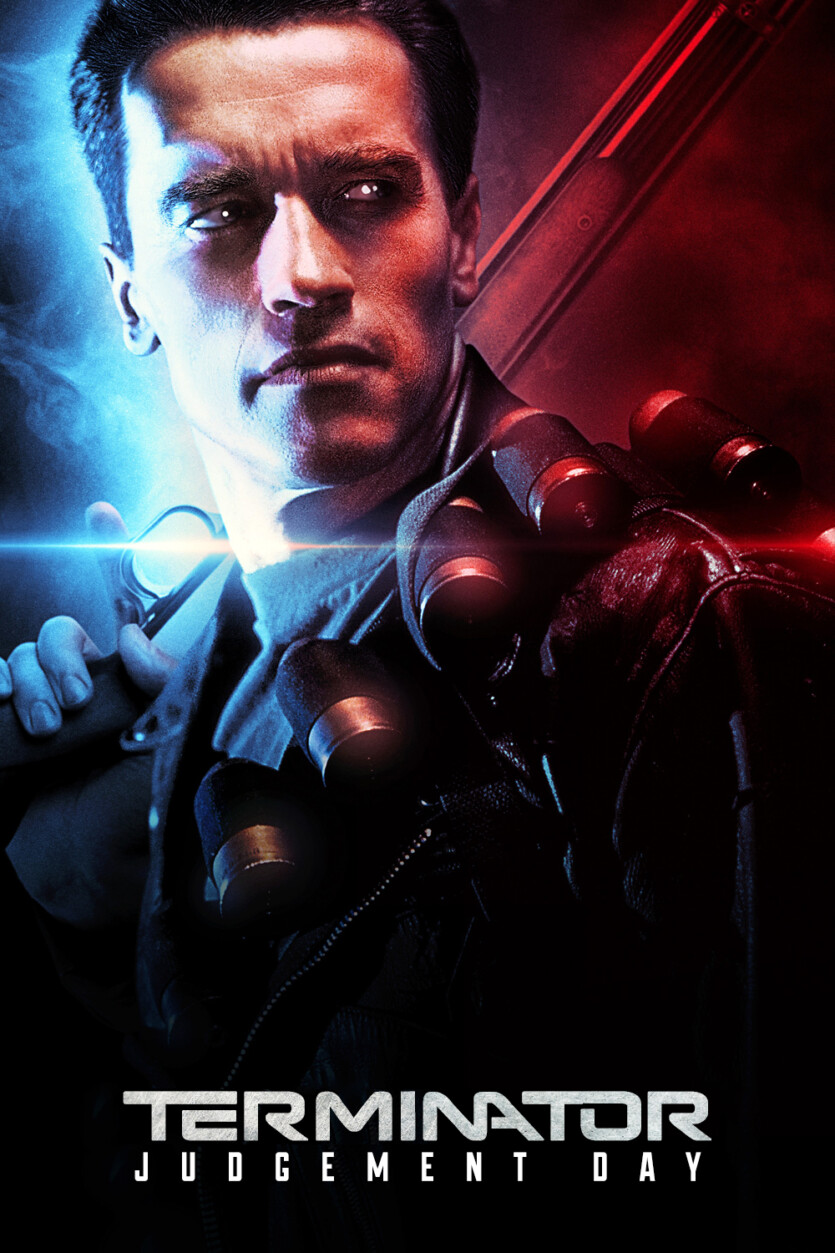
Year: 1991
Director: James Cameron
IMDb Rating: 8.6
Before CGI ruled the box office, T2 blew everyone’s minds with a liquid metal robot that could morph into anything — including your worst nightmare. The T-1000 was so ahead of its time, it probably caused a few heart attacks in VFX artists across the globe.
James Cameron didn’t just create a sequel — he created a revolution. The film set new standards for action, storytelling, and special effects. It inspired Jurassic Park , The Matrix , and even today’s AI ethics debates.
It also asked some serious questions: Can machines become sentient? Can we change our fate? And why does Schwarzenegger look so good in sunglasses?
The Matrix
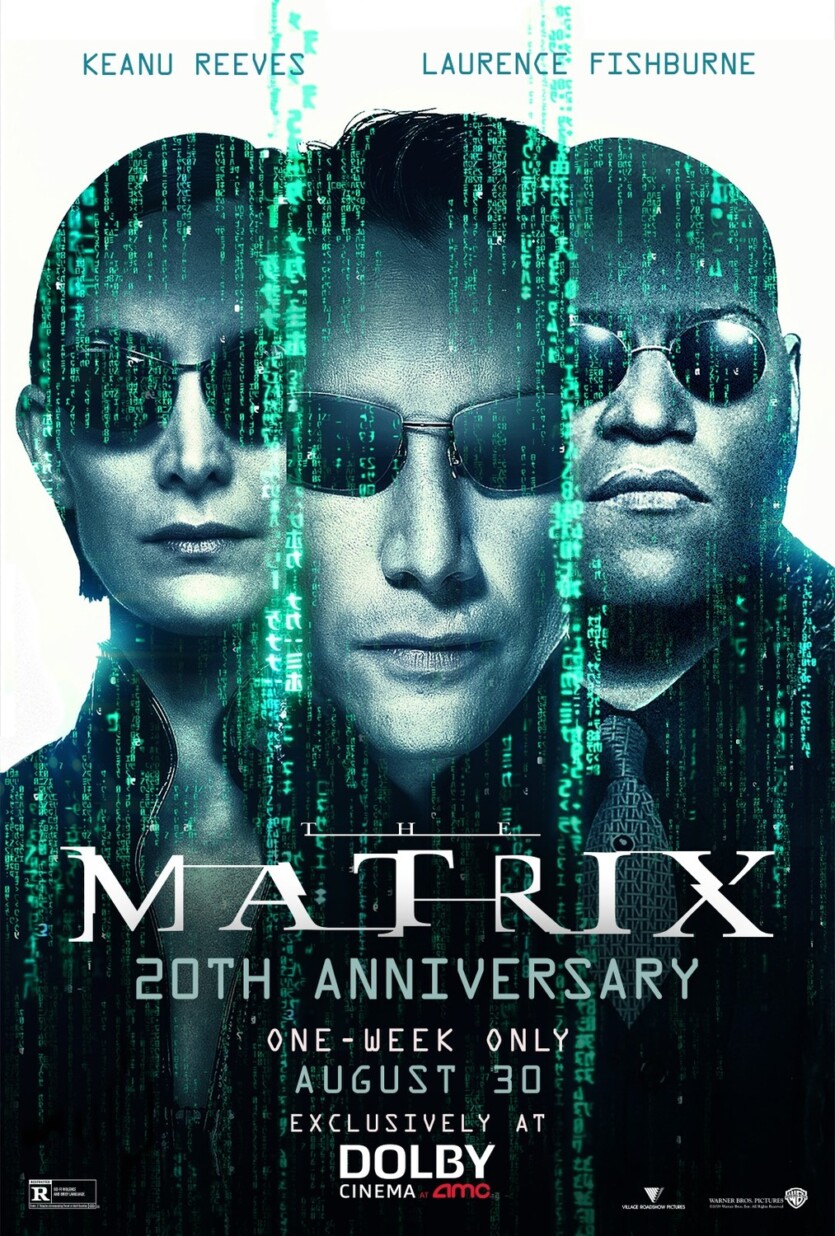
Year: 1999
Directors: Lana and Lilly Wachowski
IMDb Rating: 8.7
Red pill or blue pill? Real world or simulated reality? Philosophical mind-bender or just the coolest action movie ever?
The Matrix blurred the lines between high art and blockbuster entertainment. It brought postmodern philosophy to multiplexes and made trench coats fashionable again. With bullet-time effects, Keanu Reeves’ stoic performance, and Hugo Weaving’s terrifying Agent Smith, it rewrote the rules of sci-fi forever.
More than just a movie, The Matrix reignited interest in cyberpunk, influenced generations of filmmakers, and left us all wondering whether our Wi-Fi router is secretly plotting against us.
🔗 Recommended Reading:
- IMDb – Frankenstein
- IMDb – Star Wars: A New Hope
- IMDb – Alien
- IMDb – Blade Runner
- IMDb – Back to the Future
- IMDb – Terminator 2
- IMDb – The Matrix
Also read:







